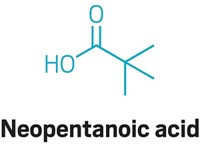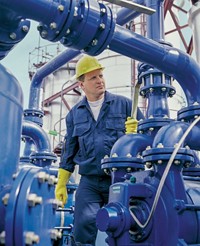Advertisement
Grab your lab coat. Let's get started
Welcome!
Welcome!
Create an account below to get 6 C&EN articles per month, receive newsletters and more - all free.
It seems this is your first time logging in online. Please enter the following information to continue.
As an ACS member you automatically get access to this site. All we need is few more details to create your reading experience.
Not you? Sign in with a different account.
Not you? Sign in with a different account.
ERROR 1
ERROR 1
ERROR 2
ERROR 2
ERROR 2
ERROR 2
ERROR 2
Password and Confirm password must match.
If you have an ACS member number, please enter it here so we can link this account to your membership. (optional)
ERROR 2
ACS values your privacy. By submitting your information, you are gaining access to C&EN and subscribing to our weekly newsletter. We use the information you provide to make your reading experience better, and we will never sell your data to third party members.
Polymers
South Korea’s DL Chemical will acquire Kraton
Company that bought Kraton’s Cariflex polyisoprene business is now buying the rest of the firm
by Alexander H. Tullo
October 1, 2021
| A version of this story appeared in
Volume 99, Issue 36

The US specialty chemical maker Kraton has agreed to sell itself to South Korea’s DL Chemical in a transaction valuing Kraton at $2.5 billion.
Last year, Kraton sold its Cariflex business—which makes the natural rubber substitute polyisoprene—to DL, then known as Daelim Industrial, for $530 million. The new owners swiftly invested $50 million to expand polyisoprene capacity in Brazil.
DL is taking another trip to the buffet table for the rest of Kraton, which in 2020 had sales of $1.6 billion and operating profit of $70 million.
In the sale announcement, Kraton CEO Kevin M. Fogarty notes that the price DL is paying represents a 50% premium on Kraton’s market value in July, when rumors emerged that the company might be for sale. DL Chemical’s chairman, Sang-Woo Kim, says in the same announcement that DL has long been “highly interested in Kraton’s specialty polymer and bio-based chemical business.”
About 55% of Kraton’s sales come from styrenic block copolymer elastomers used in roofing, footwear, automotive, and other applications; the balance are in pine chemicals. The company refines the by-products of papermaking into chemicals like fatty acids, rosin, and terpenes. Kraton bought this business—then known as Arizona Chemical—in 2016 as part of a diversification strategy.
DL Chemical was formed early this year when Daelim Industrial split into DL Holdings and a construction business. DL Holdings has annual sales of about $1.7 billion. DL Chemical, which makes polyethylene and the elastomer polybutylene, represents about 60% of those sales.
In a note to clients about the deal, UBS stock analyst John Roberts says that, in addition to having the polyisoprene business in common, DL and Kraton appear “to have adjacent C-4 chemical products and a small overlap in lube additive ingredients.”
Recent years have seen other purchases of US firms by South Korean companies. In 2019, a consortium of South Korean firms bought the silicones company Momentive. And in 2018, SK Holdings bought Ampac Fine Chemicals.




Join the conversation
Contact the reporter
Submit a Letter to the Editor for publication
Engage with us on Twitter